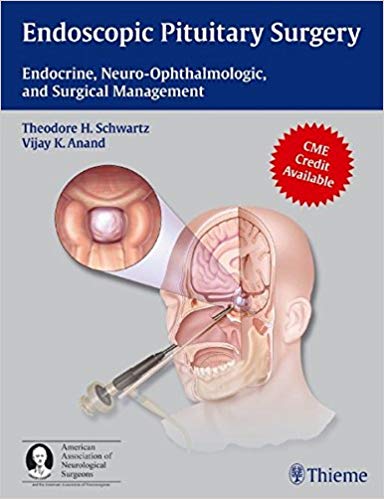
Thieme congratulates Theodore H. Schwartz on being chosen by New York magazine for its prestigious ‘Best Doctors 2015’ list.
Praise for this book:
"This is an unparalleled book on endoscopic pituitary surgery that should be in major neurosurgical, neurological, and medical libraries." — Doody’s Review
Offering the unique dual perspective of neurosurgeons and otolaryngologists, Endoscopic Pituitary Surgery: Endocrine, Neuro-Ophthalmologic and Surgical Management describes both cutting-edge endoscopic techniques and tried-and-true decision-making methodologies that lead to the most successful outcomes. From choosing the right surgical or non-surgical approach for individual patients, to managing complex endocrine and neuro-ophthalmologic issues, this is the first major reference in the field in nearly a decade, making it the go-to guide for all interdisciplinary specialists who treat pituitary tumors.
Special Features:
- Step-by-step descriptions of the newest endoscopic pituitary and skull base procedures, ensuring that specialists have full mastery of techniques for different tumor types in this surgically challenging area
- The clinical wisdom and perspectives of the masters of pituitary surgery, who share insights on patient selection, endoscopic versus open procedures, medical management, and much more
- Operative pearls from both neurosurgeons and otolaryngologists
- Compelling discussions of the pros and cons of various procedures (e.g., the utility of intraoperative MRI in pituitary surgery cases)
- Inclusion of detail-revealing 3D endoscopic images (complete with 3D glasses)
- Rationale for a collaborative neurosurgery–otolaryngology team approach to developing and implementing the most innovative endoscopic and skull base techniques
Enhanced by hundreds of images, decision-making algorithms, and clinical pearls from experts on each tumor type, Endoscopic Pituitary Surgery is a comprehensive guide representing the current palette of available treatment options. It is indispensable for residents in training as well as for practicing neurosurgeons and otolaryngologists who are making the transition to the newest minimally invasive endoscopic procedures in the treatment of pituitary lesions.

